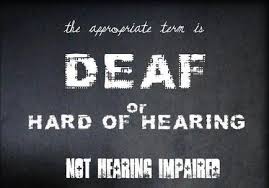 Through their parents, two deaf or hard of hearing public education students in different parts of California requested help to follow classroom discussions through Communication Access Realtime Translation [CART], a word transcription service similar to court reporting in which a trained stenographer provides real-time captioning that appears on a computer monitor. In both situations, the school district denied the request, and both students were also unsuccessful in state administrative proceedings. They filed lawsuits in federal court, alleging violations of the Individuals with Disabilities Education Act [IDEA; 20 U.S.C. § 1400] and the Americans with Disabilities Act [ADA; 42 U.S.C. § 12101]. In each case, the district court granted summary judgment to the school district. The Ninth Circuit reversed and remanded, holding a school district’s compliance with its obligations to deaf or hard of hearing children under IDEA does not necessarily establish compliance with its obligations under the ADA. K.M. ex rel. Bright v. Tustin Unified School District (Ninth Cir.; August 6, 2013) (Case No.’s 11-56259, 12-56224).
Through their parents, two deaf or hard of hearing public education students in different parts of California requested help to follow classroom discussions through Communication Access Realtime Translation [CART], a word transcription service similar to court reporting in which a trained stenographer provides real-time captioning that appears on a computer monitor. In both situations, the school district denied the request, and both students were also unsuccessful in state administrative proceedings. They filed lawsuits in federal court, alleging violations of the Individuals with Disabilities Education Act [IDEA; 20 U.S.C. § 1400] and the Americans with Disabilities Act [ADA; 42 U.S.C. § 12101]. In each case, the district court granted summary judgment to the school district. The Ninth Circuit reversed and remanded, holding a school district’s compliance with its obligations to deaf or hard of hearing children under IDEA does not necessarily establish compliance with its obligations under the ADA. K.M. ex rel. Bright v. Tustin Unified School District (Ninth Cir.; August 6, 2013) (Case No.’s 11-56259, 12-56224).
Leave a Reply
You must be logged in to post a comment.